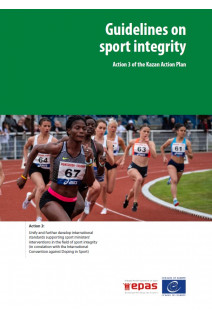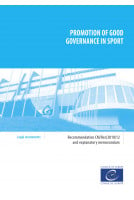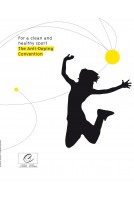Action 3: Unify and further develop international standards supporting sport ministers’ interventions in the field of sport integrity (in correlation with the International Convention against Doping in Sport)
These guidelines are simultaneously a practical ‘ready-to-use’ instrument for national governments and a stimulus to further analyse and overcome a set of problems which will permanently evolve but which have so far been poorly understood.These guidelines are to be a source of inspiration and a useful point of reference for the Ministries responsible for sport which are being asked to pay ever-increasing attention to these issues which make up the darker side of sport.
Foreword Preface Executive Summary Part 1: Sport and integrity: Background and concept
Integrity of sport
Moving to a broader approach to sport integrity
Proposal for a holistic definition
Part 2: A comprehensive approach to sport integrity issues
Introduction
Sport integrity – Shared responsibility
Sport integrity – Existing obligations
The relationship between risk and integrity
Assessing and dealing with risk
The role of the state authorities
Part 3: Integrity without boundaries – Elements which cross-cut the five policy areas
A. Multi-stakeholder initiatives
B. Whistle-blowers and free media
C. Protection of Human Rights
D. Education, prevention and awareness-raising
E. Monitoring implementation and compliance – and providing remedies
F. Gender and youth mainstreaming in sport integrity policies
Part 4: Compendium of factsheets on the five policy areas
FACTSHEET 1 Preserving the rights, safety and security of athletes, spectators, workers and other groups involved
FACTSHEET 2 Preventing and addressing harassment and abuse in sport
FACTSHEET 3 Fostering good governance of sport organisations
FACTSHEET 4 Strengthening measures against the manipulation of sports competitions
FACTSHEET 5 Ensuring an adequate anti-doping policy framework, its implementation and effective compliance measures
Conclusion








